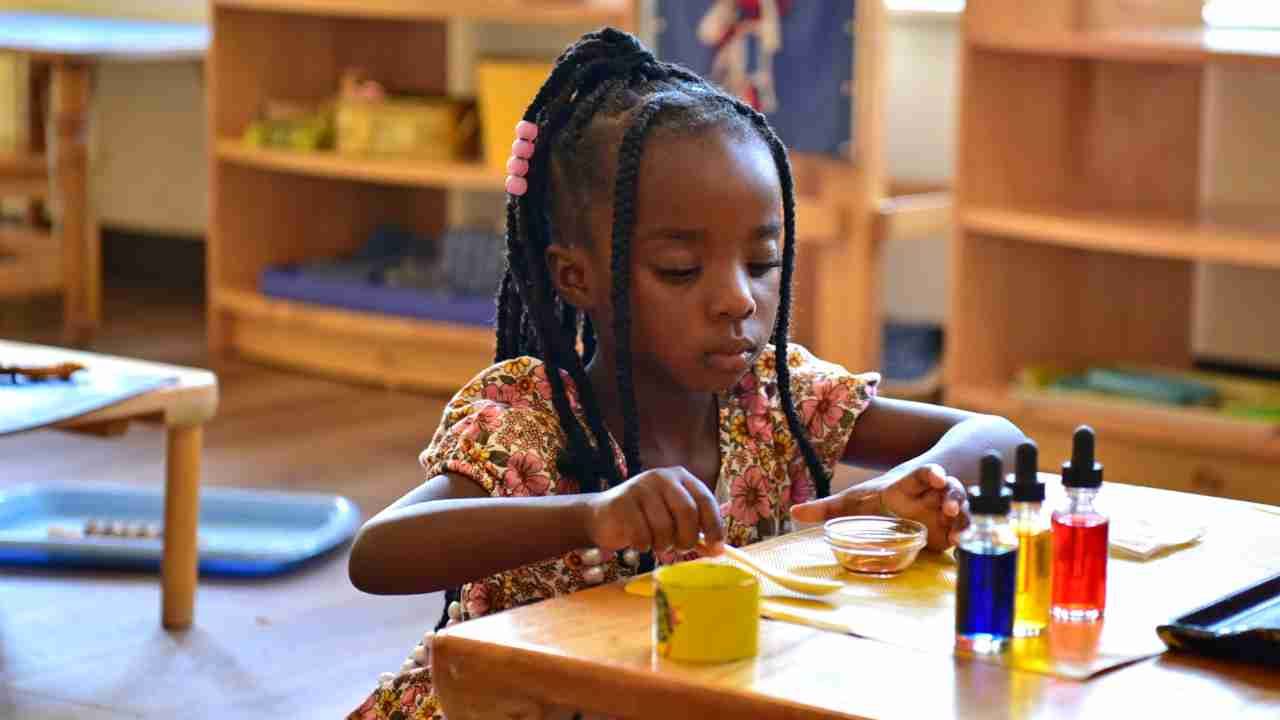
The Absorbent Mind: How Montessori Nurtures a Child’s Natural Drive to Learn
Oct 29, 2025When parents first visit a Butler Montessori classroom, they are often amazed by the calm, focused energy of even the youngest children. A toddler might be pouring water with great care, a preschooler tracing letters, or another arranging leaves by shape and color. These moments are not accidental. They are evidence of what Dr. Maria Montessori called the Absorbent Mind, a unique power of the young child to learn effortlessly from the world around them.
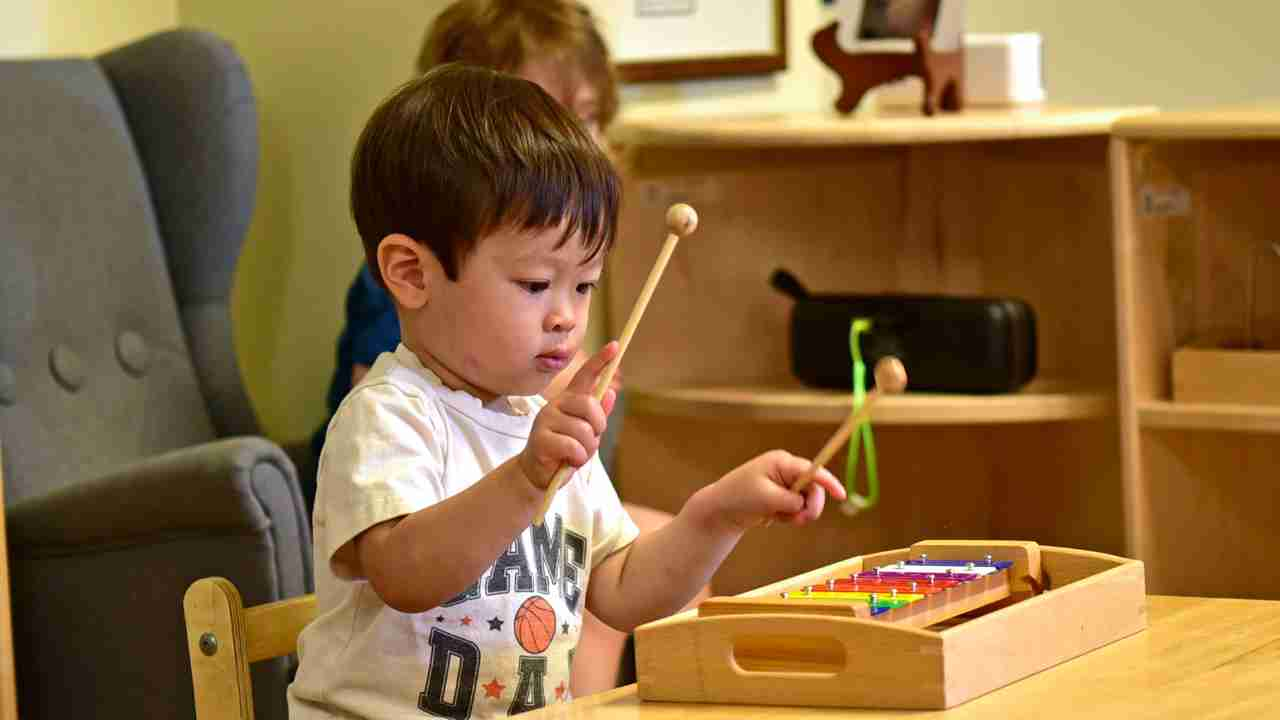
In the First Plane of Development (birth to age six), children do not learn primarily through instruction. Instead, they absorb everything in their environment: language, movement, culture, and even the emotional tone of the people around them. Montessori education is designed to nurture this remarkable ability through beauty, order, and freedom within structure. At Butler Montessori, we see every day how children thrive when given the chance to explore, imitate, and participate in the real life of their community.
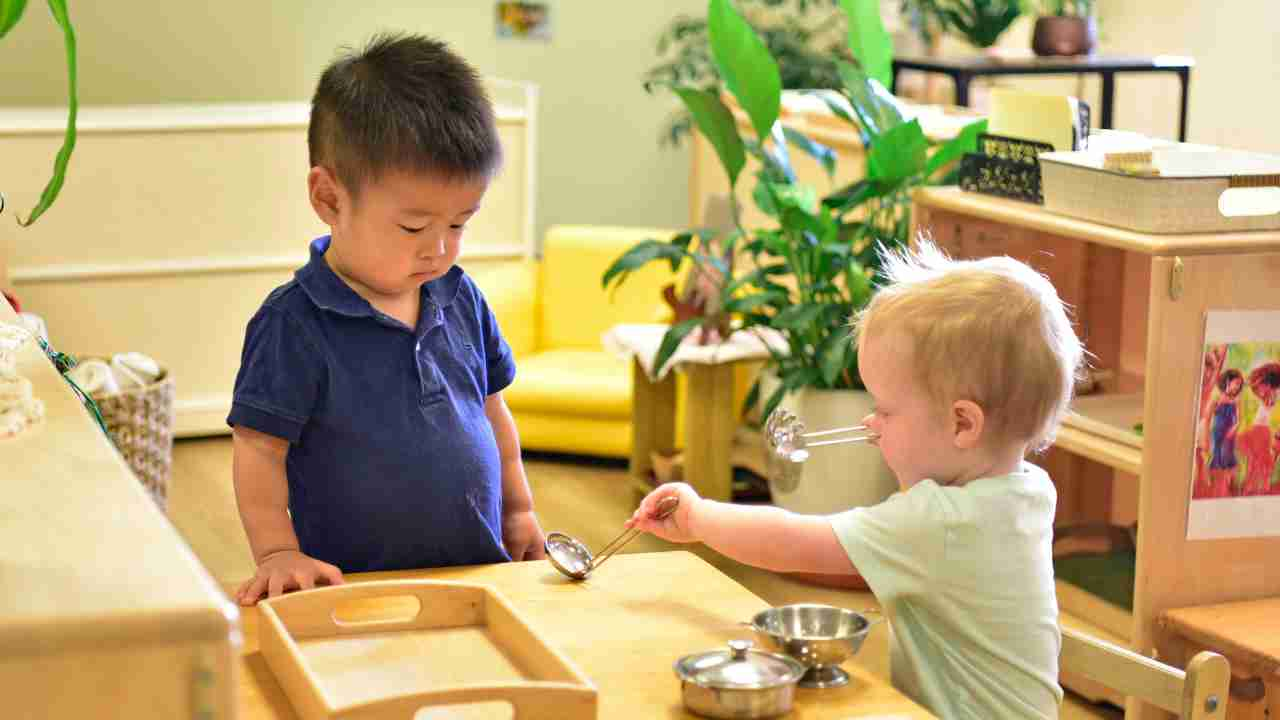
What Is the Absorbent Mind?
Dr. Maria Montessori reflected in The Absorbent Mind (1949), “Our work is not to teach, but to help the Absorbent Mind in its work of development. How marvelous it would be if by our help, if by an intelligent treatment of the child, if by understanding the needs of his physical life and by feeding his intellect, we could prolong the period of functioning of the Absorbent Mind!”
She observed that during the first six years of life, children take in impressions from their surroundings as naturally as a sponge takes in water. Unlike adults, they do not consciously decide what to learn. Everything they see, hear, and touch becomes part of who they are becoming. This is why a child can learn a language, imitate social customs, and develop a sense of order without being formally taught.
The Absorbent Mind lays the groundwork for all later learning. Every experience, from hearing music to watering a plant, helps shape the child’s growing intelligence and character. At Butler Montessori, we honor this process by creating environments that allow children to learn through active participation rather than passive observation.
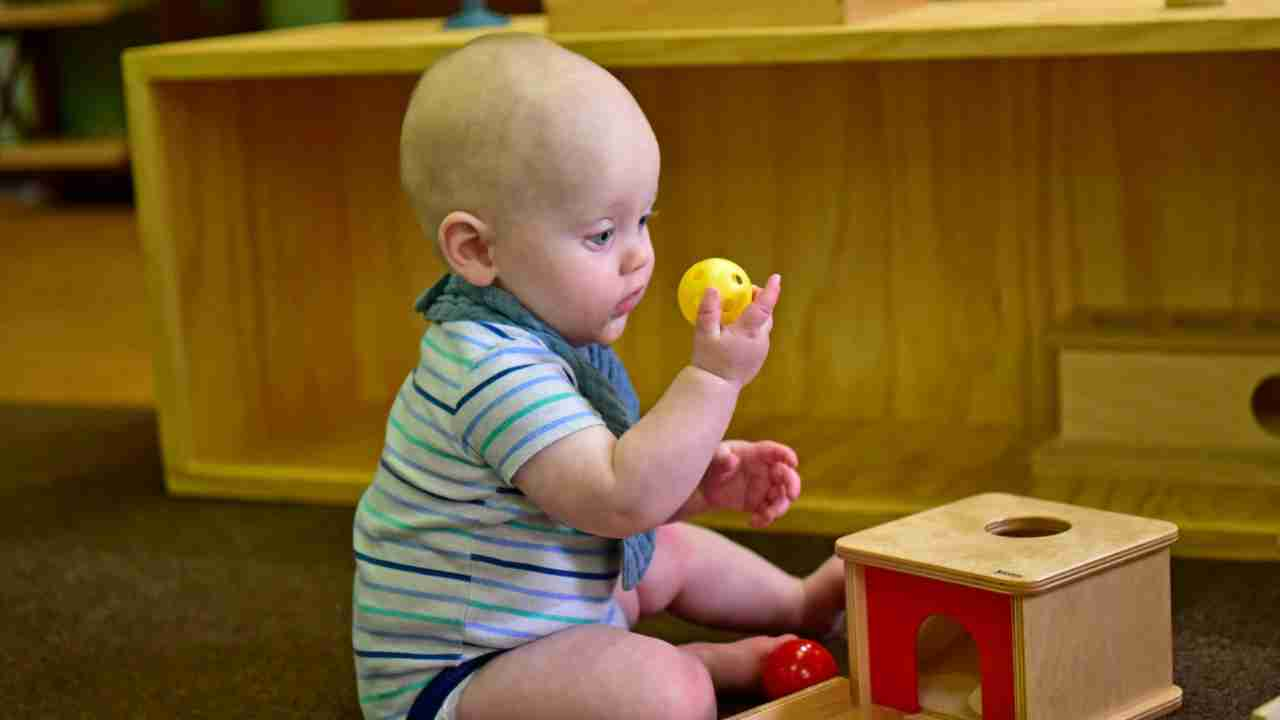
Two Stages of the Absorbent Mind
The Unconscious Absorbent Mind (Birth to Age 3)
In this first stage, learning happens without awareness or intention. Through movement and sensory exploration, infants and toddlers build the foundation of their personality and understanding.
In Butler Montessori’s Nido (6 weeks–18 months), even the youngest children experience the world through gentle interaction and purposeful activity. They explore their surroundings in a calm, beautifully prepared space that encourages movement, independence, and trust. Teachers support each child with warmth and respect, helping them gain confidence in their abilities and comfort in their environment.
In our Young Children’s Community (18–36 months), this natural learning continues through meaningful, real-life activities. Children wash tables, water plants, prepare snacks, and dress themselves. These daily tasks allow them to develop coordination, concentration, and a growing sense of independence. Language flourishes as they name objects, sing songs, and communicate with peers and adults. Every experience in the YCC strengthens the child’s mind, body, and connection to the world around them.
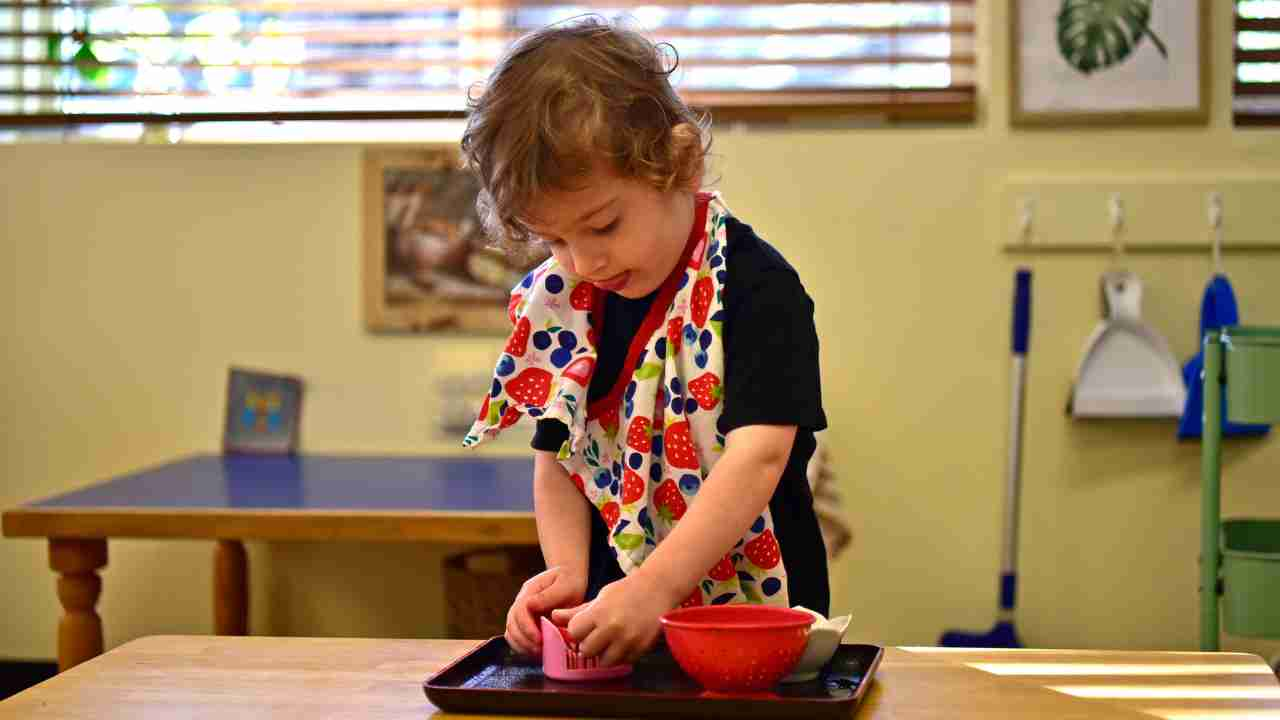
The Conscious Absorbent Mind (Ages 3–6)
Around age three, the child begins to learn with intention and awareness. In Butler Montessori’s Primary classrooms (ages 3–6), children refine what they have already absorbed by working with materials that isolate and clarify ideas. They might trace sandpaper letters to feel the shape of sounds, build towers and staircases that teach dimension, or match leaves collected on campus to shapes in the Leaf Cabinet.
These sensorial experiences organize the child’s perceptions and lay the groundwork for later abstract thinking. Materials such as the Geometric Solids, Constructive Triangles, and Binomial Cube invite discovery through touch and repetition. What begins as exploration becomes understanding. In this stage, children are not memorizing facts; they are constructing a deep, internal order that will guide their reasoning in years to come.
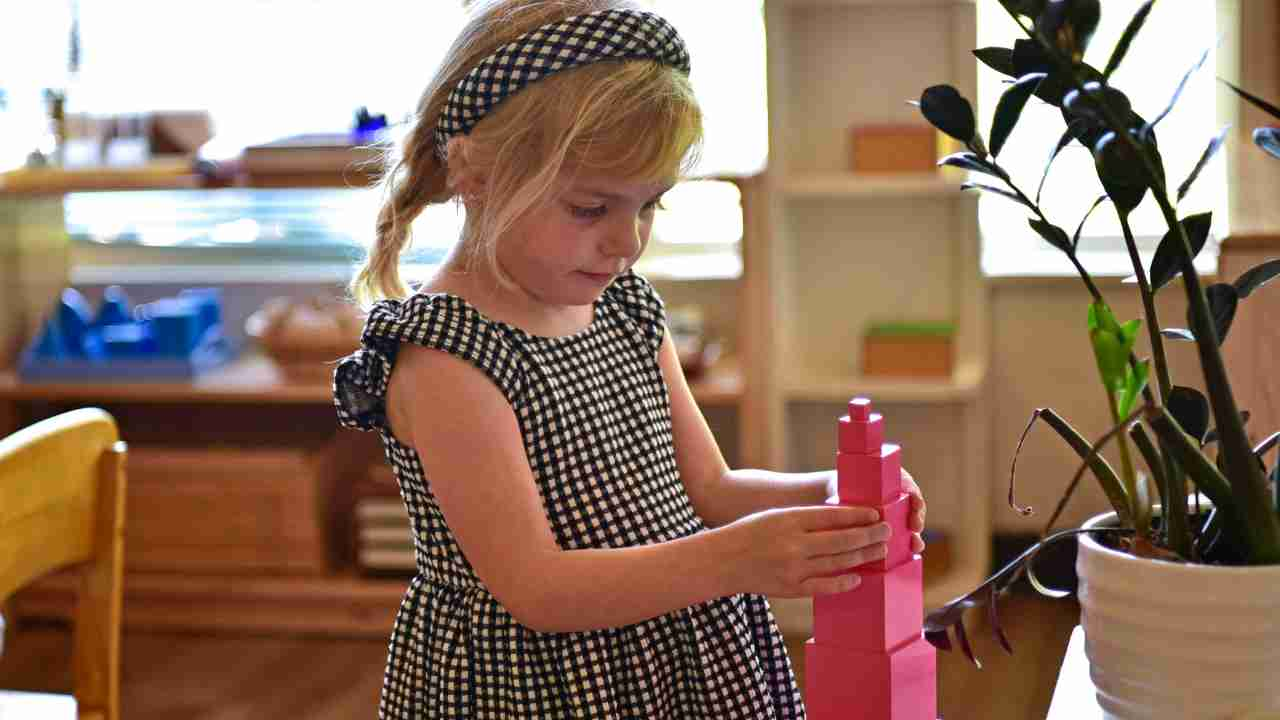
How Montessori Supports the Absorbent Mind
A Prepared Environment
Each Butler Montessori classroom is carefully prepared to meet the developmental needs of its age group. Low shelves, natural light, and real, beautiful materials invite children to explore. Everything is designed to be accessible, purposeful, and proportional to the child. In Nido, this might mean a low mirror and grasping toys that encourage movement. In the Primary classrooms, activities include pouring, polishing, and matching objects by sound and texture. The environment itself becomes the child’s first teacher.
Independence and Movement
Children at Butler Montessori are encouraged to move freely and purposefully. They choose their own work, carry materials with care, and repeat activities until they feel satisfied. Movement is not seen as a distraction from learning but as an essential part of it. A child might carry a pitcher of water, sweep a spill, or walk carefully around a work mat. Through these small acts, the child develops control, focus, and a sense of accomplishment.
Sensorial Foundations for Learning
The Montessori materials help children classify and make sense of the world. They are not toys, but tools for building intelligence. By exploring size, color, sound, weight, and form, children refine their senses and create mental order. For example, the Pink Tower introduces dimension, while the Trinomial Cube lays the foundation for understanding algebra years later. In this way, the Absorbent Mind prepares not just for academics, but for clear, thoughtful observation and problem-solving.
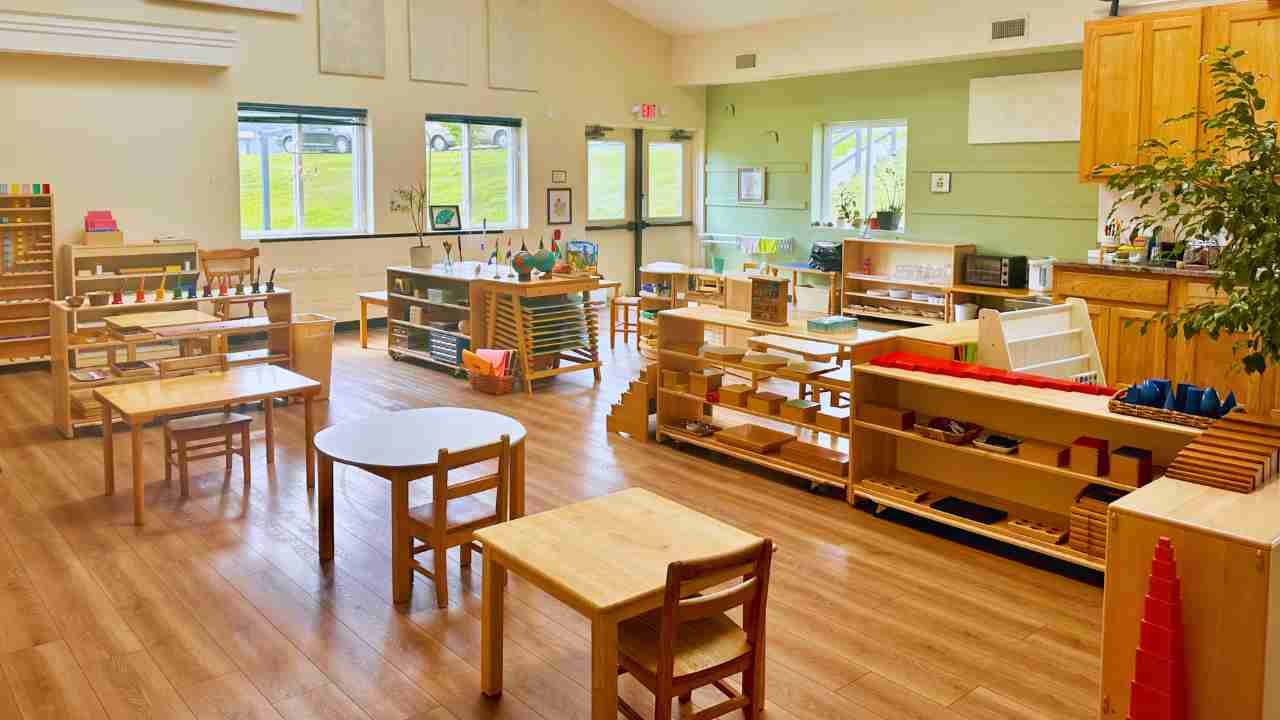
The Role of the Adult
The Montessori Guide’s role is to connect each child with the environment, not to lecture or dominate the learning process. Guides at Butler Montessori observe carefully, introduce lessons at the right moment, and step back to allow independent exploration. They respect the child’s pace and interests, trusting that curiosity will lead to deep learning. This quiet respect builds confidence, self-discipline, and joy in discovery.
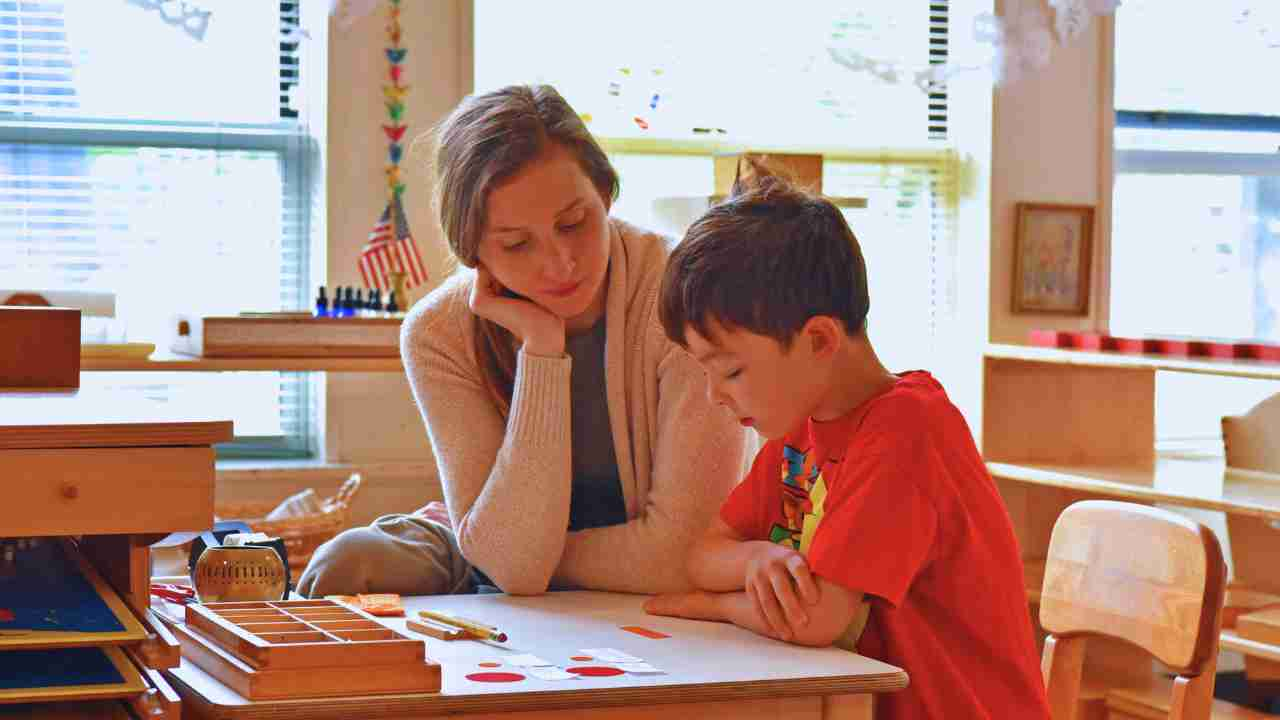
The Lasting Impact of the Absorbent Mind
The Absorbent Mind is the foundation for everything that follows. The habits of concentration, independence, and order that children develop in the early years support success in the Elementary program and beyond.
At Butler Montessori, we see the results every day. Children who began by pouring water in the YCC later conduct science experiments at the creek. Those who once matched leaf shapes in Primary are now classifying plant species or exploring geometry with enthusiasm. The love of learning that begins in these early years carries forward, transforming curiosity into capability and wonder into wisdom.
FAQs About the Absorbent Mind
- Why is it called the “Absorbent” Mind? Young children learn by taking in impressions from their surroundings without conscious effort. They absorb knowledge simply by living.
- How does Montessori support this natural ability? Through purposeful activities, hands-on materials, and environments that allow freedom of movement, repetition, and choice.
- Why are the first six years so important? During this time, the brain develops at its fastest pace. Experiences in these years shape a child’s understanding, behavior, and sense of self.
- What happens after the Absorbent Mind period? Around age six, children enter a new phase called the Reasoning Mind, where they begin to think abstractly, ask questions, and seek understanding through imagination and inquiry.
- How can parents support the Absorbent Mind at home? Offer real experiences. Let your child help in the kitchen, water plants, fold laundry, or explore nature. Slow down and include them in meaningful daily life. This builds confidence and connection.

Conclusion
The Absorbent Mind is at the heart of Montessori education and of life at Butler Montessori. By honoring this natural stage of effortless learning, we give children the foundation for independence, curiosity, and lasting joy in discovery.
Each day, we see how capable young children truly are when given the right environment to grow. What begins as simple curiosity becomes a lifelong love of learning, and that is the true gift of the Absorbent Mind.
By Kelly Troung ~ Lower School Director of Education

